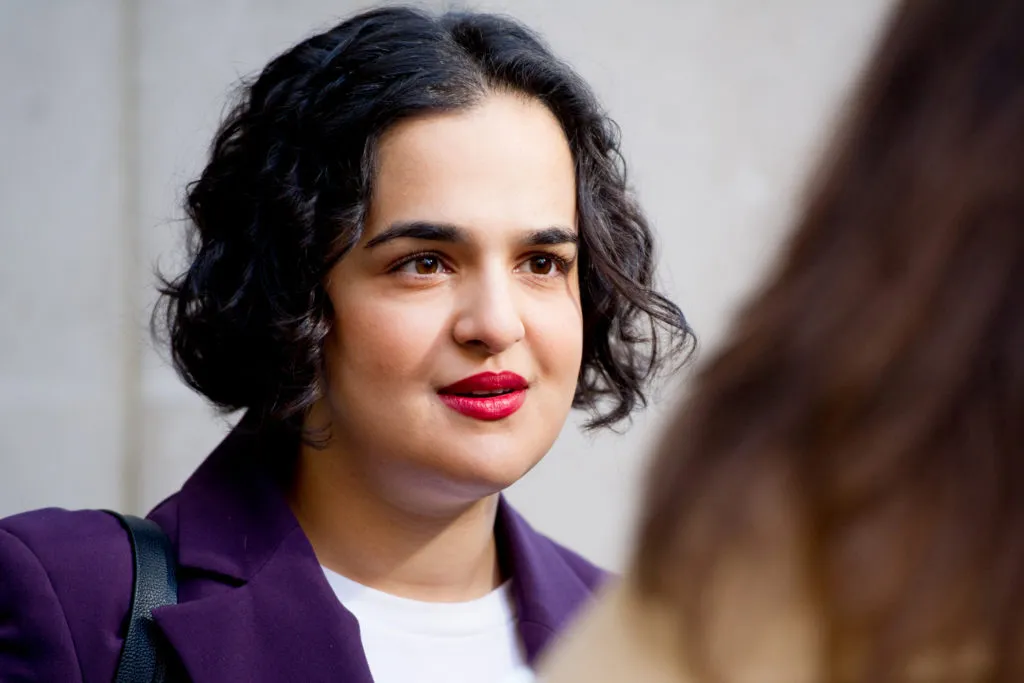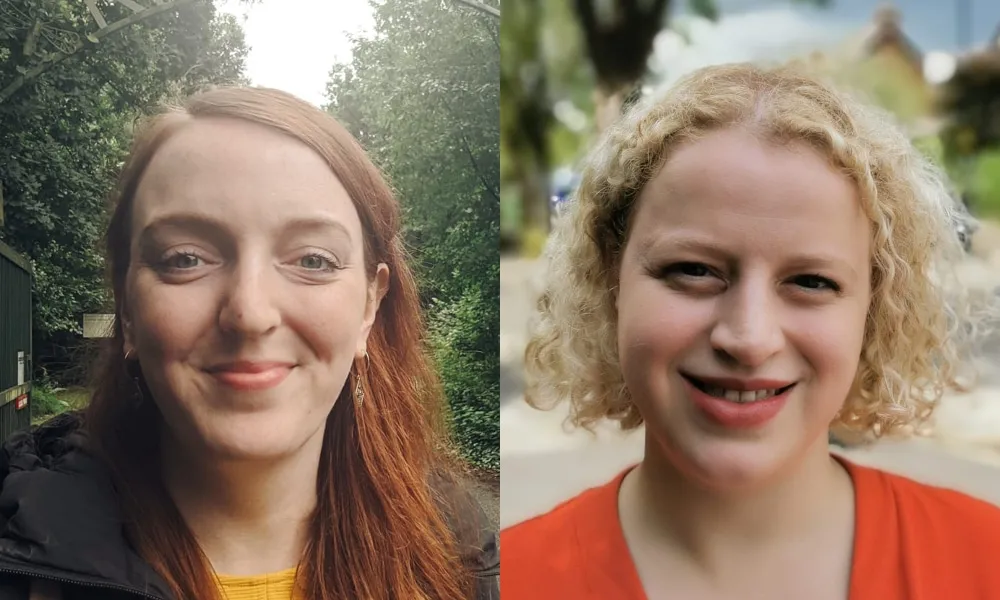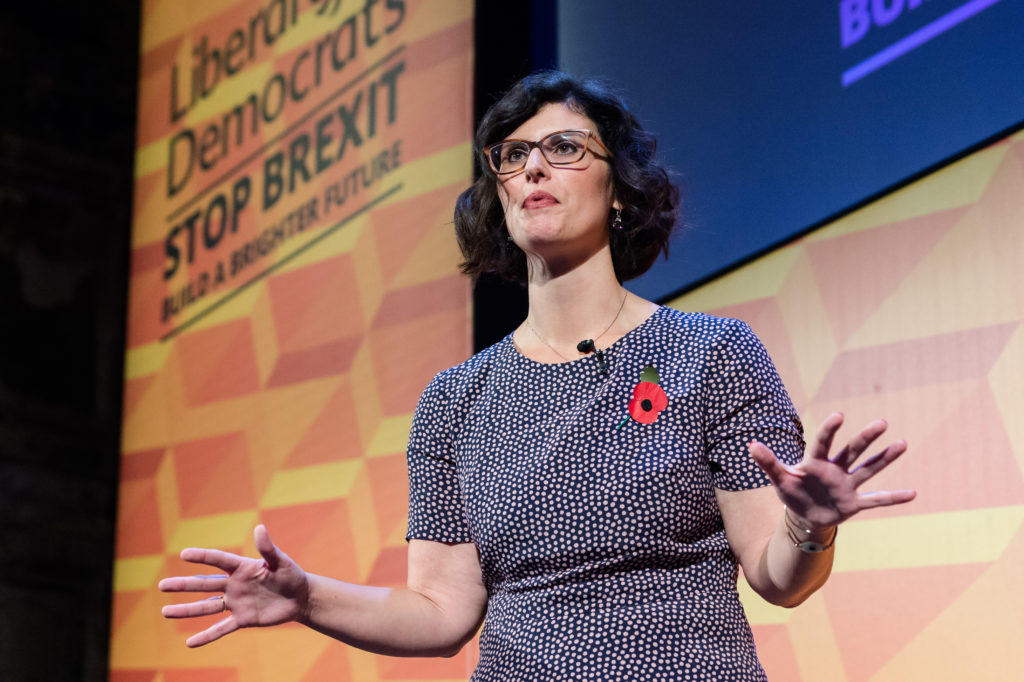Number of LGB MPs in Britain Hits Record High
Queer MPs such as Charlotte Nichols, Nadia Whittome and Olivia Blake reflect a Britain where young people feel comfortable with and empowered by expressing their identities.
In December 2019, three more MPs in the House of Commons came out as lesbian, gay, bisexual, pansexual or queer, bringing the total number of out LGB MPs to a remarkable 56. Of course, Britain is still without its first transgender MP.
The Labour MPs Nadia Whittome (Nottingham East), Charlotte Nichols (Warrington North) and Olivia Blake (Sheffield Hallam) came out as queer and bisexual. At 24, 28 and 30 years of age, they represent a new Britain where rapidly growing numbers of young people, in particular young women, now feel they have the space to identify as queer, bi or pansexual.

The average age of an MP is 52, but the average age of an queer MP is 45. Today, nine per cent of the 650 MPs identify as LGB+ but a remarkable 21 per cent of the 130 MPs aged 40 or younger say they are gay, lesbian, bisexual, pansexual or queer. When it comes to the 20-somethings who were elected in the general election of 2019 the proportion is one-third.
In contrast, only five per cent of MPs over 50 identify as queer.
This level of representation may seem surprisingly high but it reflects British society today.
Westminster is becoming a place where politicians, young and old, can express their identities honestly.
A June 2020 Ipsos-Mori poll found eight per cent of UK citizens 18 and above said they were only attracted to the same sex (gay or lesbian), three per cent said they were mostly attracted to the same sex, while four per cent were equally attracted to both sexes.
Another eight per cent said they were mostly attracted to the opposite sex but not uniformly. In sum at least 15 per cent of Britons identify as lesbian, gay or bisexual, alongside another eight per cent who, in theory, could because they acknowledge their own same-sex attractions.
The growing number of people saying they are same-sex loving is driven by a younger generation who have found space to honestly express their identity.

The 33 per cent of MPs 30 years old or younger mirrors the 25 per cent of 18-30 Brits who say they are only attracted to the same sex (eight per cent), mostly attracted to the same sex (five per cent) or equally attracted to both sexes (12 per cent).
In 2020 just three-quarters of Generation Z (18-24) identify as heterosexual. Similarly, the 21 per cent of MPs under 40 who say they are LGBT+ matches the 22 per cent of Brits 18-40 who say they are same-sex attracted.
The 56 queer MPs represent parties across the political spectrum: 24 Conservatives, 21 Labour, 10 Scottish Nationalist and one Liberal Democrat.
All parties with multiple queer MPs have a broad mix of young and old but all the women MPs are Labour, SNP, or Liberal Democrat. Since Justine Greening and Margot James left the House at the last election, the Tories are without a woman in their LGBT+ caucus.

More from PinkNews
Stars you didn’t know are LGBT+Celebs you didn’t know have an LGBT siblingThe stars who went gay for pay
Whittome, Nichols and Blake illustrate something more about the politics of queer youth. There is evidence that bisexual/pansexual Brits are more left-wing than their gay and lesbian counterparts.
In the Ipsos-Mori 2020 poll, the gay and lesbians split equally into thirds between Tory and Labour voters and others including the Lib Dems, SNP and Greens.
But nearly half of all voters who expressed a degree of same-sex attraction (bisexual/pansexual) went for Labour and only 25 per cent for the Tories. Similarly, gay and lesbians were split 50/50 on how they voted on Brexit, half voting to remain, half voting to leave, but bisexual voters went 57 per cent for remain against only 43 per cent for leave.
Meet the 56 LGBT+ MPs sitting in the House of Commons.
Nadia Whittome, Labour, 24
Mhairi Black, SNP, 26
Jacob Young, Conservative, 27
Charlotte Nichols, Labour, 28
Elliot Colburn, Conservative, 28
Olivia Blake, Labour, 30
Antony Higginbotham, Conservative, 30
Gary Sambrook, Conservative, 31
Paul Holmes, Conservative, 32
William Wragg, Conservative, 33
Angela Crawley, SNP, 33
Dan Carden, Labour, 34
Lloyd Russell-Moyle, Labour, 34
Stewart McDonald, SNP, 34
Cat Smith, Labour, 35
Mark Fletcher, Conservative, 35
Kieran Mullan, Conservative, 36
Hannah Bardell, SNP, 37
Wes Streeting, Labour, 37
James Murray, Labour, 37
Chris Clarkson, Conservative, 38
Layla Moran, Liberal Democrat, 38
Stephen Morgan, Labour, 39
Luke Pollard, Labour, 40
Stephen Doughty, Labour, 40
Damien Moore, Conservative, 40
Lee Rowley, Conservative, 40
Rob Roberts, Conservative, 41
Stuart McDonald, SNP, 42
Peter Gibson, Conservative, 45
Alyn Smith, SNP, 47
Conor Burns, Conservative, 48
Daniel Kawczynski, Conservative, 48
Iain Stewart, Conservative, 48
Mark Menzies, Conservative, 49
Stuart Andrew, Conservative, 49
Martin Docherty-Hughes, SNP, 49
Peter Kyle, Labour, 50
Gerald Jones, Labour, 50
Kate Osborne, Labour, 54
Joanna Cherry, SNP, 54
Neale Hanvey, SNP, 56
Steve Reed, Labour, 57
David Mundell, Conservative, 58
Chris Bryant, Labour, 58
Angela Eagle, Labour, 59
John Nicolson, SNP, 59
Ben Bradshaw, Labour, 60
Crispin Blunt, Conservative, 60
Mike Freer, Conservative, 60
Nick Gibb, Conservative, 60
Nigel Evans, Conservative, 63
Nia Griffith, Labour, 64
Nick Brown, Labour, 70
Michael Fabricant, Conservative, 70
Clive Betts, Labour, 70
Andrew Reynolds teaches politics and public policy at Princeton University and is director of Queer Politics at Princeton.